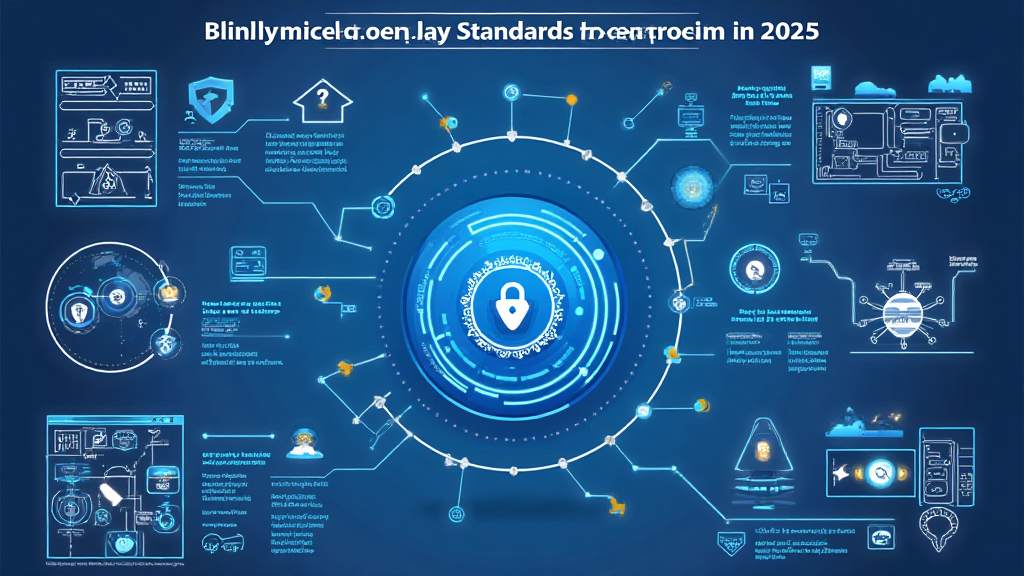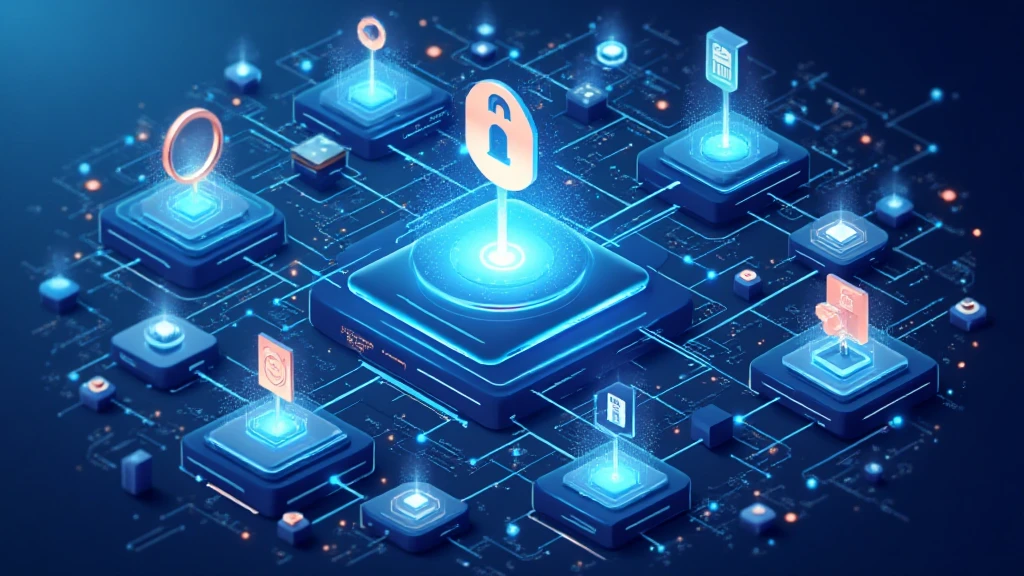2025 Blockchain Security Standards: A Comprehensive Guide for Digital Asset Protection
With the rise of decentralized finance (DeFi) and increasing user adoption globally, security in the blockchain space is more crucial than ever. In 2024, a staggering $4.1 billion was lost to hacks, illustrating the precariousness of digital assets today. As more users in regions like Vietnam enter the crypto market, it is essential to understand the security standards that will shape the industry in 2025. This article aims to deliver valuable insights into best practices and security measures that can help reinforce your digital asset protection strategy.
Understanding Blockchain Security Standards
Blockchain security standards are guided by principles that ensure the integrity, confidentiality, and availability of assets stored on the blockchain. Like a bank vault, which safeguards physical money, these standards aim to protect digital assets from unauthorized access, theft, and loss.
- Decentralization: One of the core features of blockchain technology, decentralization disperses data across a network of computers, reducing the risk of single-point failures.
- Encryption: Data on the blockchain is secured through cryptography, which ensures that sensitive information remains confidential and is accessible only to authorized parties.
- Consensus Mechanisms: These protocols allow participants in the network to validate transactions collectively, maintaining the trustworthiness of the blockchain.
1. The Role of Consensus Mechanisms
Consensus mechanisms form the backbone of blockchain networks, ensuring that all participants agree on the state of data. However, vulnerabilities can arise within these mechanisms that could compromise security. For example, Proof of Stake (PoS) faces risks from potential “nothing-at-stake” attacks, where malicious validators attempt to validate multiple chains simultaneously.

In regions like Vietnam, where user engagement in crypto continues to surge, understanding and addressing these vulnerabilities is crucial to maintaining user trust.
2. The Rise of Smart Contract Vulnerabilities
Smart contracts are self-executing contracts with the terms of the agreement directly written into code. They have revolutionized the way agreements are made and executed in the blockchain ecosystem. However, coding errors or vulnerabilities within smart contracts can lead to significant financial losses.
For instance, in 2023, several high-profile hacks exploited vulnerabilities in smart contracts, leading to losses of over $500 million across various DeFi platforms. To counter these risks, auditing smart contracts has become an imperative practice.
- Grow your knowledge: Familiarize yourself with common vulnerabilities, such as reentrancy and timestamp dependence.
- Use reputable auditing services: Engaging professionals to audit your smart contracts can significantly reduce potential risks.
3. User Security Practices
As an individual investor, safeguarding your assets requires diligence and awareness of security practices. Here are some effective strategies:
- Utilize Hardware Wallets: Devices like the Ledger Nano X provide an added layer of security, greatly reducing hacking risks by storing private keys offline.
- Enable Two-Factor Authentication: Strengthen your account security by requiring two forms of verification.
- Stay Updated: Regularly updating software and applications can help protect against newly discovered vulnerabilities.
Market Trends in Vietnam’s Crypto Space
Vietnam has seen a remarkable growth rate in crypto adoption, with a reported 29% increase in the number of active users in 2024. This rising trend highlights the need for enhanced security measures tailored to both new and experienced users in the region. According to a report from Hibt.com, the demand for comprehensive security practices will only intensify as more Vietnamese individuals and businesses enter the blockchain space.
4. Implications for Investors in 2025
As we approach 2025, the evolution of blockchain security standards will likely continue to adapt. Investors must remain vigilant. Here are some considerations for the upcoming year:
- Increased regulatory scrutiny: As governments worldwide tighten regulations around cryptocurrencies, staying compliant will be paramount to avoiding penalties.
- Emerging security technologies: Innovations like zero-knowledge proofs will enable more secure transactions, enhancing user privacy.
- Community-driven security initiatives: Collaborating with others in the crypto community can promote a safer environment for all users.
5. Comprehensive Security Frameworks
A robust security framework integrates multiple layers of protection. Here’s a breakdown of essential components:
- Risk Assessment: Constantly evaluate the risks associated with holding and trading cryptocurrencies.
- Incident Response: Have a plan in place for potential breaches or security threats, ensuring rapid response to mitigate damage.
- Education and Training: Users should receive comprehensive education on security practices, empowering them to protect their assets.
Real-World Examples of Security Breaches
To emphasize the importance of understanding blockchain security, consider the following table of notable breaches and their impact:
| Year | Platform | Amount Lost | Nature of Attack |
|---|---|---|---|
| 2023 | DeFi Platform A | $200M | Smart Contract Vulnerability |
| 2024 | Exchange B | $500M | Phishing Attack |
| 2024 | Wallet C | $100M | Unauthorized Access |
Source: Chainalysis 2024
Conclusion
As the landscape of cryptocurrencies evolves, staying ahead of security challenges will require continuous education and proactive measures. With anticipated trends and security practices for 2025, users can better navigate the digital asset world while minimizing risks. Remember, an informed user is the safest user in the crypto space.
For more insights on blockchain security and the latest trends, consider exploring resources at mycryptodictionary. Embrace the journey ahead but always prioritize your asset security. Not financial advice; consult local regulators.
Written by Dr. Jane Smith, Blockchain Security Expert, author of over 15 papers on cybersecurity and blockchain technology, and leading audits for prominent crypto projects. For expert analysis and recommendations, feel free to reach out for insights.





